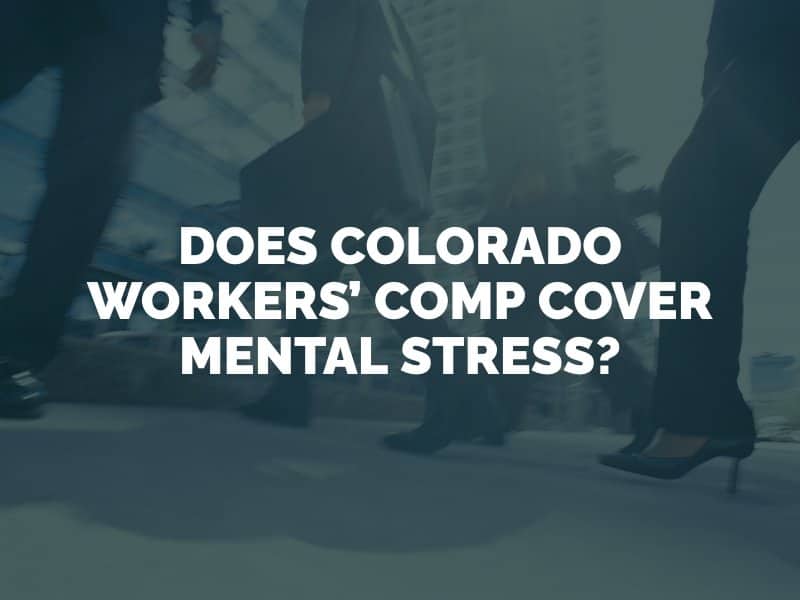Many people suffer mental stress related to their jobs. If the stress or psychological harm is due to exacerbating workplace conditions – including harassment, discrimination, hostility or abuse – the worker could recover benefits through a workers’ compensation claim in Colorado. If something connected to your job leaves you with severe anxiety or depression (long-term damage to your mental health), you may qualify for benefits. These claims can be difficult to navigate, however.

The law in Colorado allows employees who are covered by workers’ compensation to file claims for mental stress, in some circumstances. Situations that could lead to workers’ comp claims for mental, emotional or psychological stress include witnessing a death, repeatedly witnessing serious bodily injuries, unreasonable travel demands or sales quotas, and harassment or discrimination. The basic guidelines for mental stress workers’ comp claims (Colorado Revised Statutes Section 8-41-301) are as follows:
If you believe you qualify for workers’ compensation benefits for mental stress, permanent mental impairment or a mental health condition, report your condition to your employer as soon as possible. See a psychiatrist or psychologist to document your condition. Then, tell your employer that you wish to file a workers’ comp claim. Your employer will help you fill out Form WC15, the Worker’s Claim for Compensation, and submit it to the Colorado Division of Workers’ Compensation by the deadline.
If you wish to recover workers’ compensation in Colorado for a nonphysical injury, you will need evidence to support your claim. Just as you must provide medical evidence from a physician for a physical injury claim, you must provide the testimony of a licensed psychiatrist or psychologist to prove a mental impairment. Go to a licensed therapist or psychiatrist for your work-related mental stress to receive an official diagnosis. This can serve as evidence for your workers’ comp claim.
You must also prove that the mental stress or impairment you are claiming arose out of and in the course of employment. Your job must be the primary reason for the mental stress that you are claiming. In general, it must also have stemmed from something that is not standard to your job or a typical day at work. Note that Colorado law also does not allow a claim for mental stress that arises out of a disciplinary action, demotion, termination, work evaluation, job transfer or other employment actions taken in good faith by an employer.
If the Colorado Division of Workers’ Compensation accepts your claim for mental stress, you could receive up to 12 weeks of medical impairment benefits, with a maximum of 50 percent of Colorado’s average weekly wage at the time of your claim. This limit does not apply to victims of crimes, violence, or occupational injuries or diseases that cause neurological brain damage. You could also recover up to two-thirds of your lost wages from an inability to work. Consult with a Denver workers’ compensation attorney for more information or assistance filing a claim for mental stress.